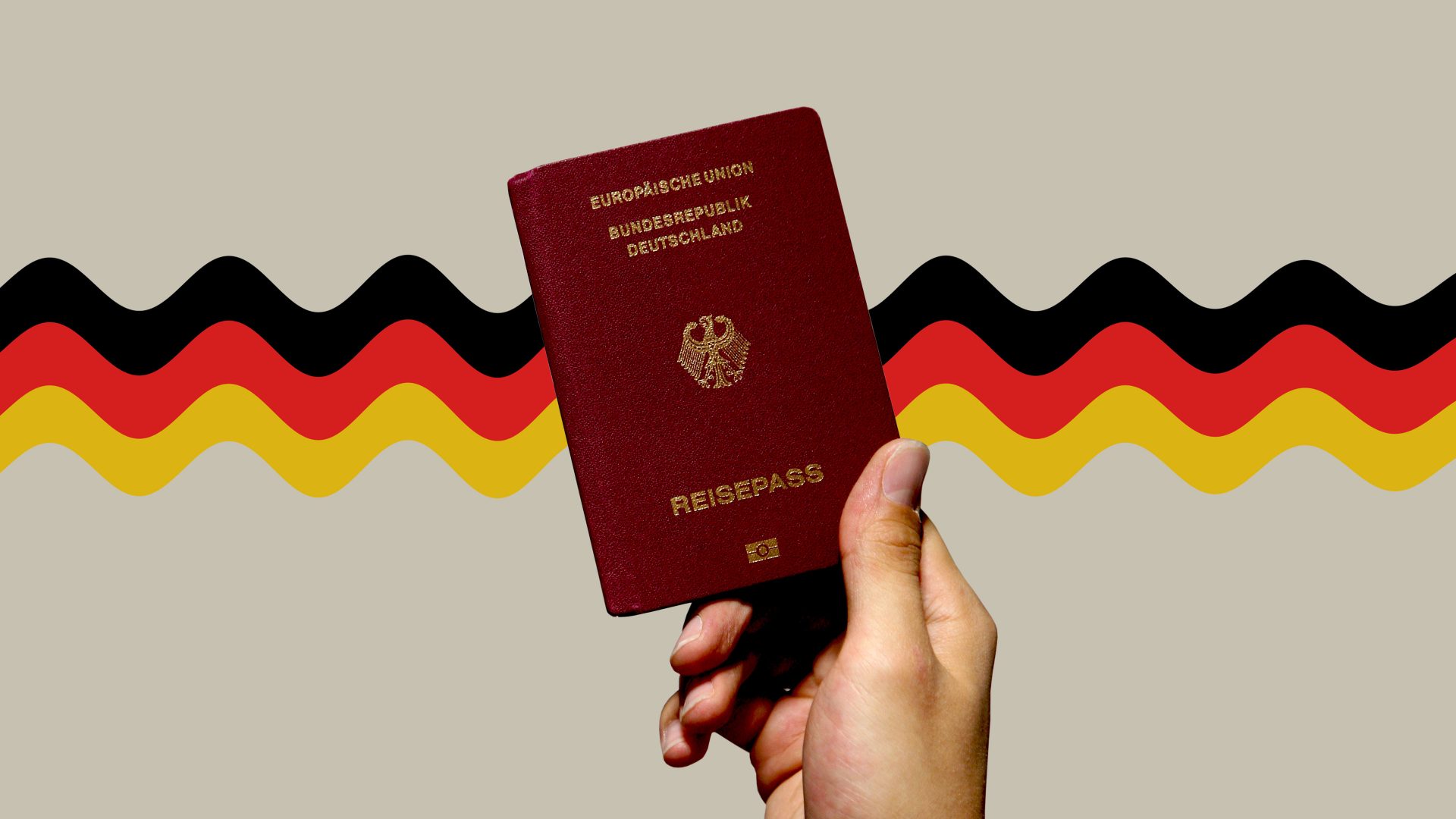Should you still be looking for a more extravagant new year resolution than packing in the booze and tobacco, how about promising yourself a German passport for 2023?
If you missed out on the post-Brexit rush (41,000-plus Britons received German citizenship between 2016 and 2021) you may be particularly interested to hear that the new year could see a significant relaxation on how to become a Kraut. At least, if the left wing of our government – the Social Democrats and the Greens – get their way. Their Liberal coalition partner is less eager, and the opposition is, well, in opposition.
The far-right AfD is dead against, because for them any true German must be able to prove a Germanic bloodline back to the huns. The party has a long-established slur for those they feel should never have received German citizenship: Passdeutsche (passport Germans). This is reserved for those who “only” have the passport but lack a Germanic look (whatever that is nowadays) or a Fritz-like name.
As this blood-and-soil ideology is a thing of the past and there will be no way back to it, let’s leave AfD aside and look at less outdated arguments against – and in favour of – reform.
There are higher obstacles to citizenship in Germany than in countries like the UK, France, Portugal, Sweden and Poland, which – among other requirements – demand five years of legal residence before naturalisation (three when married to a citizen) and allow you to keep your original passport.
In Germany, like Ireland, Hungary and Romania, you need to prove eight years of legal residence. Switzerland, Austria, Italy, Spain and Bulgaria require you to have lived there for 10 years consecutively to apply for citizenship.
Children born in Germany to foreign parents with legal long-term status receive citizenship. In their early 20s, however, they have to choose between their parents’ and the German passport. With us, dual citizenship is generally frowned upon, although exceptions are made: citizens of EU countries may keep both passports.
This is prone to cause confusion: Giovanni di Lorenzo, editor of the renowned German weekly Die Zeit, once proudly stated on a talk show that as a German and Italian citizen he had just voted twice in the European election. Others on the show questioned this privilege, but the journalist insisted he was right to have double voted. He was later investigated for electoral fraud and fined.
The real injustices don’t receive such media attention. Here’s one: Morocco, for instance, doesn’t release a Moroccan from being Moroccan. Thus Germany allows Moroccans (and citizens from states with similar rules, like Iran) to keep their passport and get a German one on top. Turkey isn’t as clingy, it allows its people to change citizenship. But in Germany Turks often refrain from applying for a German passport because they fear disadvantages in their motherland concerning inheritance, real estate etc.
As a result, our largest group of immigrants – mainly well-integrated taxpayers or retirees who have lived in Germany for four to five decades – feels discriminated against because others are allowed to keep two passports while they aren’t.
The intended reform thus has two aims: to generally allow for dual citizenship (children of legal foreign residents won’t have to pick a passport any more, but can keep two) and to reduce the period of time you have to spend in Germany before being eligible for citizenship: five years instead of eight. If you perform well professionally or master the German language, there is a pathway to citizenship after three years.
The country is split on the matter, according to polls. The Christian Democrats criticise the plans as “selling out” the passport – an obvious exaggeration, but the caginess isn’t unfounded, which is why the Liberals are stalling the reform. Core arguments in favour of the new law suggest that the option of a fast(er)-track passport will a) facilitate integration and b) attract well-educated immigrants. But as there is no data to prove either, the advocates risk being called out as wishful thinkers while the adversaries gain approval. They demand that a passport should only be awarded after successful integration, not as a means to it.
As usual, and again not unfounded, the biggest fear among sceptics is that the local immigration authorities aren’t always insistent that an applicant must be able to make a living without social welfare. And so far, little is done by the governing parties to disperse these concerns – so the stage is set for an emotional and probably nasty debate in early 2023. Happy New Year!




